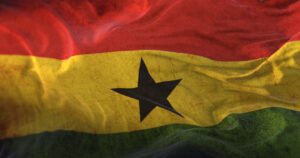It’s become almost commonplace to hear of English speakers making their home in popular African destinations like Ghana, Kenya, Tanzania or even South Africa. But imagine the possibilities that could unfold for you in the often-overlooked yet opportunity-rich settings of Francophone Africa
It appears our family isn’t alone in contemplating a return to the continent. A quick dive into YouTube will show you that a growing number of individuals within the African diaspora are undertaking the momentous decision to relocate to the continent. This shift includes not only those born in Africa or to African parents but extends to the entire spectrum of people with African heritage, encompassing African Americans, those of Caribbean birth and others in the global African community.
This trend signals a burgeoning desire amongst the diaspora to reconnect with their historical roots and to explore the opportunities that the African continent has to offer.
In 2019, Ghana rolled out the red carpet with its Year of Return, a landmark initiative by the Ghanaian government to encourage the African diaspora to come back to the continent, particularly to Ghana. The occasion marked 400 years since the arrival of the first enslaved Africans in Jamestown, Virginia. The campaign not only celebrated African heritage but also aimed to foster economic ties and bolster tourism by inviting the global African family to reconnect with their roots and invest in the continent’s future. It was the catalyst that put Ghana on the map as the go-to place for those looking to reconnect and invest in their ancestral homeland. The country is thought to have made $1.9 billion from tourism and investments.
Thousands of individuals have relocated and received citizenship in Ghana, embracing the nation as their new home. Additionally, countries like Sierra Leone are welcoming members of the diaspora, offering citizenship to those who can trace their lineage back to the nation, often through DNA verification.
However, there is a region on the continent that English speakers often overlook – the French-speaking countries of Africa. Many individuals looking to relocate overseas often prefer destinations where language and cultural barriers are minimal – it’s natural to opt for the path of least resistance. Yet, in my search for the ideal place for myself and my children, I’ve come to realize the importance of not dismissing unexpected opportunities that present themselves. In today’s newsletter, we’ll explore why the English speaking diaspora should consider moving to Francophone Africa.
Senegal had crossed my mind as a potential home since my sister is based in Dakar. However, it wasn’t until I attended the UK-Francophone West and Central Africa Trade and Investment Forum in London that the breadth of opportunities available to the English-speaking diaspora in these nations truly came to light.
1. Potential Commonwealth Expansion
One of the most strategic considerations for those moving to Francophone Africa is the potential expansion of the Commonwealth in the region. The insights gained from the investment forum gave me the strong impression that in the wake of Togo and Rwanda, more Francophone countries may soon be aligning with the Commonwealth. The Commonwealth is more than a community of English-speaking nations; it’s a platform for enhancing trade and investment across borders. With a collective population exceeding 2.4 billion, its member states benefit from facilitated trade agreements, educational exchange programs and cooperative legal frameworks. For entrepreneurs, this could mean a frictionless entry into markets that were previously challenging to penetrate due to regulatory and tariff constraints. For professionals, it could translate into greater job mobility. For the English-speaking diaspora looking to establish roots or invest in Africa, this could herald a time of unprecedented opportunity and growth.
2. Language is Key, but Not a Barrier
Indeed, French is the official language in these nations, and the French you recall from school days may not suffice. While knowing the language is a significant advantage, it’s not an insurmountable barrier. English is rapidly growing as a business language, and there’s a high demand for English speakers in various sectors. Moreover, language learning opportunities abound, and communities are typically supportive of new learners. Take my sister’s experience, for instance. She relocated to Senegal shortly before the pandemic hit, with only a basic grasp of French. Within three years, she’s become fluent, even conducting parts of her work in French. So, don’t let the challenge of learning a new language deter you from settling in one of these vibrant countries.
3. Affordable Cost of living
When you stack up the cost of living in Francophone Africa against places like Kenya and Ghana, you’ll find some happy differences. In countries like Senegal and Côte d’Ivoire, daily expenses for groceries, dining out, and local transport often run lower, attributable to less expensive local food products and government-subsidized services. There’s a catch though. Some utilities and internet services while improving, can sometimes be more costly in Francophone regions.
However, if we’re talking about housing, costs can vary significantly. In city hubs like Abidjan and Dakar, rents are just as expensive as those in Nairobi and Accra, particularly for expatriate-standard accommodation. However, when you move away from these city centres, the cost of living can drop considerably, with the potential for more affordable, yet comfortable, living. This might be a challenge if you have a job in the city or have children who have to be at a particular school.
I’ll finish by saying, you should carefully balance the subtle variations in living expenses with your expected quality of life and your own personal inclinations, if you’re contemplating relocating to any of these countries.
4. Ongoing Infrastructural Development
As you consider making your move to Africa, it’s worth noting the progress in infrastructure you’ll witness in countries like Senegal and Côte d’Ivoire. Senegal with its Emerging Senegal Plan has embarked on several major development projects, including the construction of the new Blaise Diagne International Airport, the city of Diamniadio and an expansive rail network. These initiatives are part of a broader vision to modernize the country’s infrastructure and improve connectivity. Over in Côte d’Ivoire, infrastructure is also getting a significant boost. Abidjan is transforming, with better road networks and an upcoming metro system poised to tackle the city’s heavy traffic.
But it’s not all smooth sailing—some rural areas are still playing catch-up, with access to basic amenities like roads and electricity proving inconsistent. However, I do think that there is a growing commitment to improving living conditions and business prospects for rural dwellers in these countries.
5. Economic Growth Offers Diverse Opportunities
The economic landscape of Francophone Africa is bustling with vitality and promise. Nations such as Côte d’Ivoire and Senegal are not just surviving; they’re thriving, with GDP growth rates that are among the highest on the continent. Senegal is basking in the success of its Emerging Senegal Plan, targeting infrastructural and economic reforms that have bolstered its GDP. Côte d’Ivoire is thriving too, with its economy benefiting from a stable political climate and robust cocoa and coffee sectors. These focused efforts are cementing these countries’ reputations as emerging economies with favourable environments for investment and growth.
And Finally…
While the economic prospects in countries like Senegal, Côte d’Ivoire, Togo, and Benin are indeed bright, they are not without their challenges. Political and social instability have historically affected the region, with issues such as civil unrest, the current trend of coups and regional conflicts posing risks to sustained economic growth, investment and peaceful living. Senegal, for example, often seen as a beacon of democracy in the region, has not been immune to protests and political opposition.
While the allure of Francophone Africa is strong, so too is the need for awareness of its complexities, including the recent wave of political instabilities. It’s a reminder that the path to new beginnings in Africa is often paved with both promise and caution.




